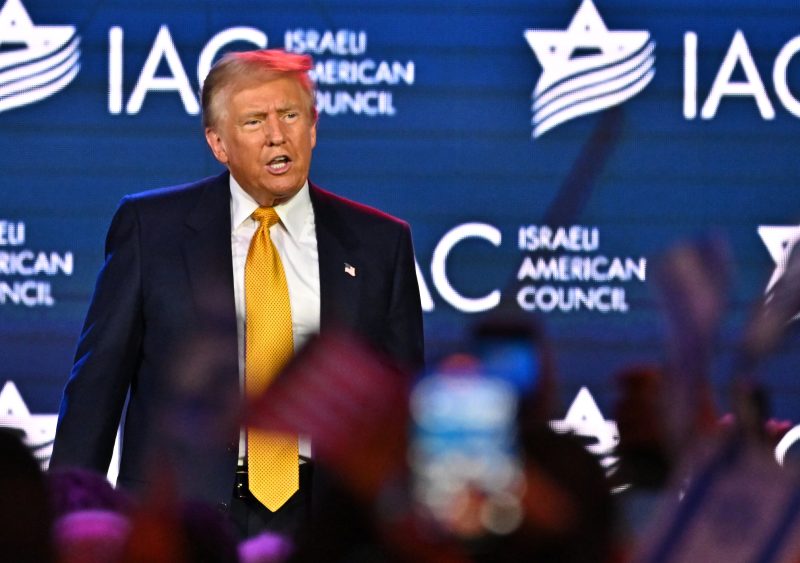In a recent controversial statement, President Donald Trump implied that Jewish voters would have a significant impact on the outcome of the upcoming presidential election. This statement has sparked discussions and debates across the political spectrum, raising questions about the role of identity politics and voting patterns within the Jewish community.
The Jewish vote has historically been divided between the Democratic and Republican parties. While Jewish Americans have traditionally leaned towards the Democratic Party, there has been a noticeable shift in recent years, with some members of the community supporting the Republican Party and President Trump.
One of the key factors influencing Jewish voting patterns is the approach of political candidates towards issues that are important to the Jewish community. Traditionally, the Democratic Party has been perceived as more aligned with Jewish values, particularly on social justice issues, healthcare policy, and support for Israel. However, President Trump’s strong stance on Israel, including moving the U.S. embassy to Jerusalem and his administration’s support for Israel’s security, has resonated with some Jewish voters who prioritize a pro-Israel foreign policy.
Despite these factors, it is crucial to recognize that Jewish Americans are a diverse group with a wide range of political views and priorities. While some may support President Trump based on his policies towards Israel, others within the Jewish community are deeply concerned about his rhetoric on immigration, race relations, and other social issues. For many Jewish voters, the rise of anti-Semitism and white nationalism in recent years has amplified these concerns and reinforced their commitment to opposing bigotry and discrimination in all forms.
President Trump’s assertion that Jewish voters could determine the outcome of the election underscores the significance of engaging with and understanding the complexities of the Jewish community’s political attitudes and values. Rather than viewing Jewish voters as a monolithic bloc, it is essential for political leaders to recognize the diversity of opinions and experiences within the Jewish community and address their concerns thoughtfully and respectfully.
As the election approaches, the role of Jewish voters and their impact on the outcome will continue to be a topic of discussion and analysis. Political candidates will need to navigate these complexities carefully and work towards building relationships with the Jewish community based on trust, respect, and a genuine commitment to addressing their diverse needs and concerns.
In conclusion, President Trump’s comments on the influence of Jewish voters in the upcoming election highlight the complexities of identity politics and voting patterns within the Jewish community. Understanding and engaging with the diverse perspectives and priorities of Jewish voters is crucial for political leaders seeking to earn their support and trust. By addressing the concerns and values of Jewish Americans thoughtfully and respectfully, candidates can build stronger relationships and foster a more inclusive and representative political landscape.
